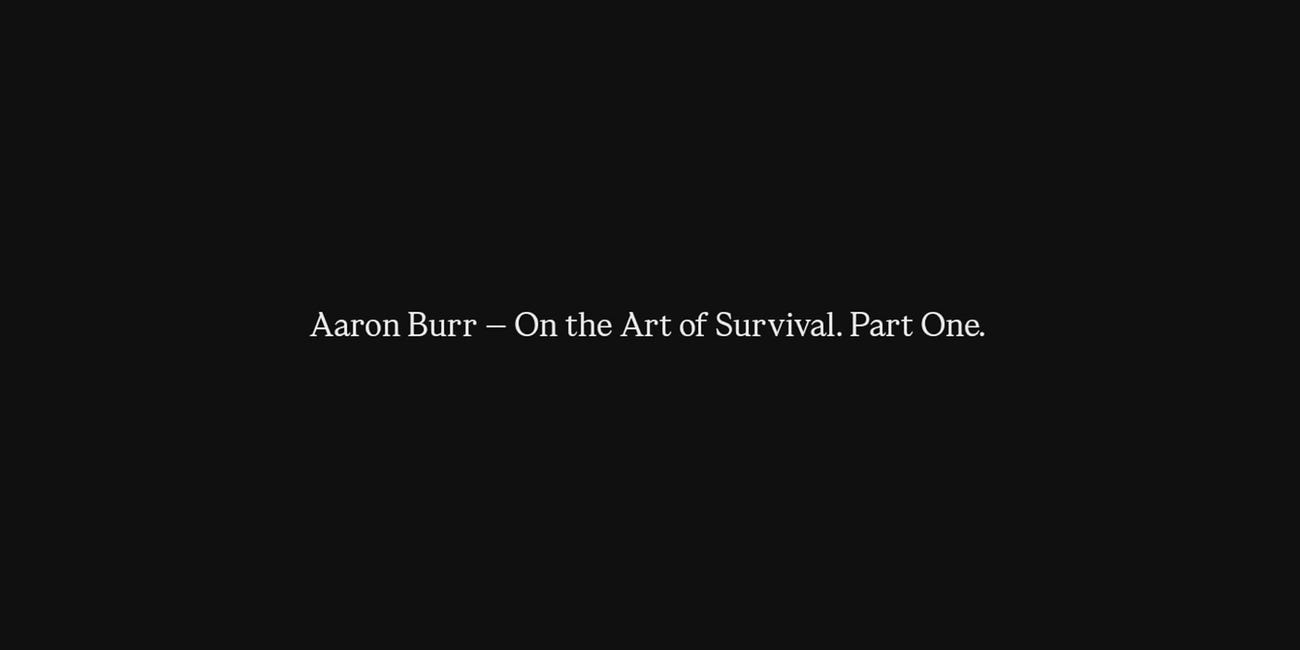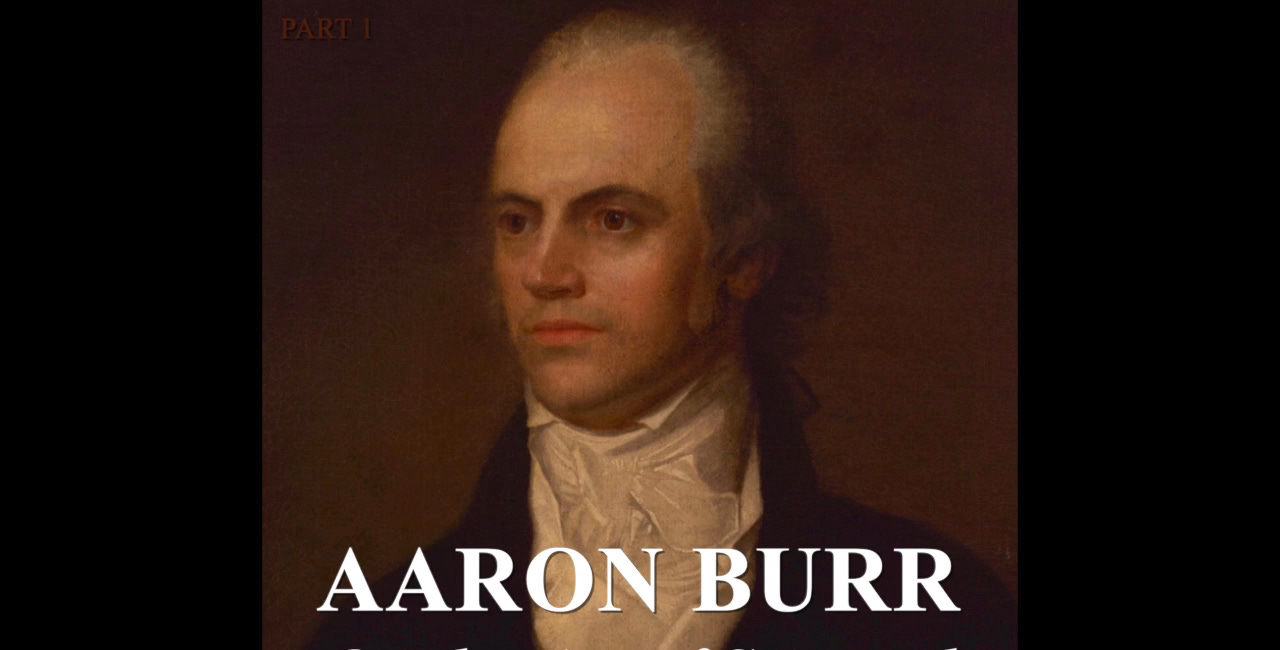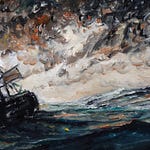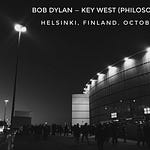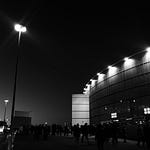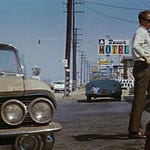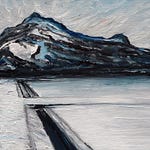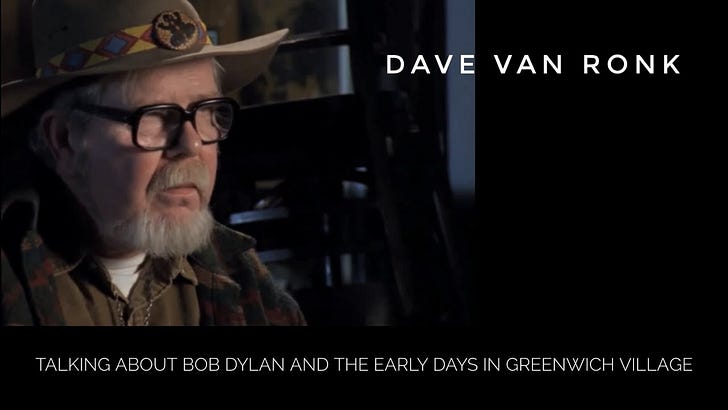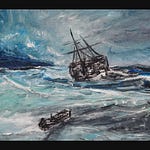Now I will tell you what the duel was actually like. Not the headlines, not the second-hand mythology, but what it felt like to stand on that field to face a man I had known for decades, and to take part in the grim ceremony we called honour.
It was early, just after dawn on July 11th, 1804 in Weehawken New Jersey. The sky was gray, the air thick with river mist. We crossed the Hudson River from Manhattan by boat—Myself, my second William Van Ness, and the surgeon that we had arranged. Hamilton had brought Nathaniel Pendleton, his second, and doctor, David Hosack.
Weehawken was chosen for its seclusion. It was already hallowed by blood. Hamilton's own son, Philip, had died in a duel on that same ground three years before. There was no crowd, no noise, only the sound of water lapping and men walking with deliberate silence.
I felt calm, cold and focused. Not hatred not even anger. By that point it was something deeper. The weight of honor pushed too far and a feeling that words had failed, and this was all that remained. I had not wished for Hamilton's death. I had hoped, perhaps foolishly, that we would both fire wide and leave the field with honour intact. But when I saw him there standing across from me, I knew one of us would not leave untouched.
We used Wogden dueling pistols—Finely made English smoothbore flintlocks. Each loaded with a single round. The seconds measured out the distance, ten paces, and the terms were agreed. We would fire on signal, or at our discretion, once the word was given. The seconds would turn away to preserve deniability and not witness the actual shot. We took our positions. I stood on the ledge of the rock, Hamilton, slightly lower, near a tree.
Then came the word ‘present’. I raised my pistol. I saw him do the same. He fired first. I remember the flash, the crack, and the twig snapping above my head. Whether he meant to miss, as he later claimed, or his hand was unsteady, I do not know. But he had fired, and so I took aim.
I fired deliberately. He staggered. He collapsed. He didn't cry out. He lay there, stunned, breathing. Hit in the lower abdomen, the ball having ricocheted off a rib and lodged near the spine. I approached only briefly. My second pulled me away quickly as the matter was now illegal. We had to leave before the authorities arrived.
Hamilton was taken back across the river. He lingered for more than 24 hours—Speaking, suffering, and eventually dying the next day, July 12th, 1804. What did I feel afterward? Not triumph. And I didn't feel grief. It was something closer to finality. The duel had not begun that morning.
It had begun years earlier, through whispers, letters, sabotage, and slander. That day was merely the conclusion, the final paragraph in a long and bitter volume. Hamilton's death destroyed me politically. I became a fugitive, a pariah, and eventually a man nearly erased. Did I want to be the king of a country? No. But I did want to lead. I wanted to build, I wanted to take hold of a nation that was young, confused, and half-formed… and shaped something worthy of its promise— And for that, they called me a would-be king.
Let's speak honestly. In the early 1800s, the western lands of America were a wild, unstable frontier. The Louisiana Purchase had just been made. Vast, unknown, lawless. Spain still held Florida, Mexico, and half the continent. The federal government could barely govern its own cities, let alone the Mississippi. In that chaos, some saw danger. I saw a possibility. Yes, I traveled the West. I spoke with generals, settlers, merchants. I gathered men.
I planned something bold, perhaps to settle land. Perhaps to lead a military expedition, perhaps to liberate Spanish-held territory. But did I conspire to crown myself king of a new empire? That's the tale Jefferson's partisan spread, that I would march into Mexico, seize power, and raise a throne in my name. It was theatrical useful for my enemies. Treason they cried, but the courts did not agree. I was tried, yes, but acquitted for lack of evidence and for want of law.
So what is the truth? I did not seek a crown. I did seek a command. I did not believe the old colonies had a monopoly on the future. I believe the West was the next chapter of the American story, and I wanted to help write it. If that made me dangerous, then so be it. But kings rule by right. I only ever wish to rise by merit, ambition, and courage. The very virtues this republic claims to reward. You may judge me, but judge honestly — not as a tyrant in waiting, but as a man who saw an open door in the wilderness and dared to step through.
Ah, Jefferson. Now there's a man who wore a velvet glove over a very practiced hand. What kind of man was Thomas Jefferson? He was brilliant, to be sure, a philosopher of the Enlightenment, a student of science, architecture, music, botany, languages, and contradiction. He wrote of liberty while owning slaves. He spoke of limited government while expanding federal power. He smiled like a friend while working like a rival. And I, well, I knew all of this, and I worked with him anyway. Jefferson thought in principles. He could imagine entire systems in his head, a republic of free yeoman farmers, a land governed by reason, untouched by corruption. He hated cities, banks, standing armies, all the machinery of power.
And yet when power was handed to him he used it with quiet efficiency. He was eloquent, charming and dangerous in the way quiet men often are. He rarely raised his voice but when he moved the earth seemed to shift. In 1800, Jefferson and I ran together, he for president, he for vice president.
We were technically on the same ticket, though in truth the Constitution then made us competitors. We tied in the Electoral College. For 36 ballots, the House was deadlocked. It was Hamilton of all people who swung the final votes to Jefferson. Not out of love, but out of hatred for me. Jefferson became president.
I became vice president. And what did he do? He froze me out. Gave me no influence, no trust, no role beyond presiding over the Senate. He smiled and remained civil. But behind that smile, he treated me as a threat, not a partner. He never insulted me directly—No fiery pamphlets, no duels. No, that was Hamilton style. Jefferson dealt in silences omissions and quiet ruin—He had a long memory and a slow patient way of pushing men out of his path he let others do the dirty work—but make no mistake… he watched closely and he did not forgive. Jefferson was a genius in ideas, a man of books and dreams.
He was also a man of deep contradiction, soft-spoken control, and political calculation. He could be your ally today and erase you tomorrow, all while keeping his hands clean. I respected him. I sometimes admired him, but I never trusted him. And in time, I learned he did not trust anyone who might rise beside him.
So, what kind of man was Jefferson? A philosopher king in theory, a subtle tactician in practice, and a master of keeping the blade hidden until you'd already been cut.
It was March of 1805, and my time as vice president had come to its end. I had been frozen out by Jefferson, hated by Hamilton, hounded by the press. My political future was collapsing like a house of cards, and yet, in that moment, standing before the Senate chamber, I gave them words from the heart.
It was perhaps the finest speech I ever gave and the first to earn me for a flicker of time respect across all sides. Let me recall it, not the exact words as transcribed by clerks, but the spirit of what I told them. This house is a sanctuary, a citadel of law, of order, and of liberty, and it is here, it is here in this exalted refuge, that you are to judge between the people and the rulers of the people. I reminded them that they were stewards of a sacred trust. Not kings, not partisans, but guardians of something greater than themselves. The Senate chamber, I told them, must remain a place above faction, where the voice of reason could still be heard over the clamor of the crowd. I had presided over them for four years, and though I had been cast out of favor in the wider world within that chamber, I had conducted myself with dignity and fairness, and they, even those who loathed me, knew it.
I am now to quit forever the scene of my public life, and I do so with the utmost sensibility of every mark of respect, of kindness, and of attachment which has been manifested toward me. Yes, I told them I was leaving, and I left with grace. No bitterness, no plea for sympathy, just a final salute to the institution I had served, and many even those with Federalist pens ready to stab me in print, wept. May the Senate preserve forever that spirit of moderation and dignity which will ensure its stability and the happiness of this people. Even my enemies rose and applauded.
Some say it was the most moving moment ever witnessed in that chamber up to that time. And then I left, into the West, into exile. Into infamy if you believe the popular version. But for that hour in that marble hall, I was seen not as a scandal, but as a man. And perhaps that is all any of us ever ask, to be seen clearly, if only once. In my journey through the Ohio and Mississippi territories, as I gathered men, secured boats, and spoke of opportunities on the frontier, I made use of a name, Jefferson's, to give weight to my plans.
I let it be understood or misunderstood that I was acting with some national sanction. perhaps even to prepare for a future conflict with Spain, which seemed increasingly likely at the time. Did I forge documents? No. Did I stand before a crowd and cry out, the president has sent me? No. But did I allow the illusion to linger?
Yes, I did. In Washington, a man gains trust by a title. In New Orleans or the Kentucky Hills, he gains it by inspiration or by association with power, saying that you have the ear of the president opens doors that boldness alone cannot. And so I let them believe it, not from malice, but from necessity. Without that belief my expedition would have withered before it began. Yes, I felt remorse not immediately not in the moment of action.. No there I felt only the thrill of possibility the rush of building something from nothing. But after, when Jefferson turned on me, when he who had once smiled now moved the full weight of the government against me, and then I felt it — Not because I had betrayed him, but because I had once hoped he might understand me. I saw in Jefferson a kindred spirit, a man of ideas, of vision, but I overestimated him. Or perhaps I underestimated his caution.
So yes, I regret the illusion I created, not because it was a crime. The court found no treason in it, but because it gave my enemies the rope they needed to hang my name for a generation. In the wilderness of the early republic, we were all inventing ourselves, building a nation from air and promise.
I merely did what others did in whispers. I did it in motion. If that makes me guilty, then I am guilty of being a man of too much belief in boldness and not enough in the patience of slow consent. And for that I paid, not with death, but with history's silence until now.
After I gave my farewell to the Senate in March of 1805, I departed Washington City, not in disgrace, not yet, but in shadow, with the applause of my final speech still echoing behind me, and the eyes of a nation uncertain whether to cheer or shun.
Where did I go? I went west toward the Mississippi, toward possibility, toward danger. I left behind the salons and the sneers of the capital and made my way through Virginia, Kentucky, Ohio, and Tennessee.
I visited Blenner-Hassett Island in the Ohio River, a little kingdom of refinement owned by a foolish and visionary man named Harmon Blenner-Hassett, who offered me money, boats,and faith. In the West, the world felt unfinished, and I too was unfinished. I spoke to men of settling new lands, of leading expeditions, of perhaps taking Spanish territory should war come, and yes, I carried with me letters, introductions, even from men in Washington, letters that did not condemn me, not yet.
I traveled the Ohio, the Cumberland, and the Mississippi—Floating, riding, speaking, meeting farmers, ex-soldiers, merchants—Men hungry for land and purpose. In New Orleans, I spoke quietly with men who disliked the federal government, men who saw in me not a traitor, but a leader. Some whispered of secession, others of empire. I listened, I did not declare rebellion. I declared vision of a new nation in the west perhaps, or simply a lawful settlement in land. I had every right to explore, but to Thomas Jefferson back in Washington it looked like conspiracy. And once he decided that, the full weight of the presidency moved to crush me.
I was arrested near Mobile, Alabama in 1807 trying to escape. I was brought in chains to Richmond, Virginia. I stood trial for treason with Chief Justice John Marshall presiding. And I won. I was acquitted because truth matters and evidence still had its place. But the damage was done.
The man who had nearly been president had become a pariah. So where did I go after that? Across the Atlantic to Europe. But that is another tale. For now, know this. After Washington, I went not into hiding. but into the wilderness with eyes wide and dreams burning. I went westward, not to escape America, but to reshape it. And for that, I was branded traitor. But perhaps I was only too early, or too bold, or perhaps the Republic cannot bear those who walk too far ahead.
Much of my travel across the interior was on horseback. I was if I may say so an exceptional rider—Balanced, disciplined, untiring. A man must be when he rides not for leisure, but for purpose. I crossed from Virginia to Kentucky, from Ohio to Tennessee. Mounted and alert. I purchased and exchanged horses along the way, you know, from taverns, inns, or trusted farmers. At times I rode alone, at times with aides or followers, but the saddle was my most loyal companion.
When I reached the great rivers, the Ohio, the Cumberland, the Tennessee, and of course the mighty Mississippi, I left behind the horse and took to the boats. These were not pleasure barges. These were flat boats, keel boats, and rafts. shallow-bottomed, hand-built craft that could carry men, arms, supplies. And where did I get them? From my supporters.
In Cincinnati and Marietta, I arranged the construction of boats. At Blenner Hassett Island, my host, the idealistic and somewhat foolish Harman Blenner Hassett, provided money, men, and timber. I hired boatmen, most of them ex-soldiers or frontiersmen, men who knew the current and the eddies and were not afraid to drift into the unknown. We built a fleet, small but purposeful. We stocked it with food, tools, and rumors. We floated downriver in columns as if towards settlement, but to others, including President Jefferson, it looked like an army on the move.
So now you ask how they brought me back, how they seized me like a fugitive and dragged me across states to stand as a traitor to the very republic I helped shape. I remember it well.
The journey was long, not just in miles, but in dignity undone day by weary day. In February 1807 I was in the Mississippi Territory, near present-day Alabama, traveling under an alias, Aaron Edwards, when I was recognized by a local federal agent named Nicholas Perkins. He rode hard to alert Major Edmund P. Gaines, an officer at Fort Stoddart. Gaines, young and ambitious, arrested me on the spot February 19th, 1807. I had no army, no rebellion.
No shot fired, but Jefferson had already declared me guilty in the press, and the machinery of justice had begun to turn, or rather to grind. I was escorted east by a military guard on horseback, under tight surveillance. The route was rough, indirect, and slow. We passed through the Carolinas into Georgia, then north toward Virginia.
No trains, no carriages, just rain, mud, and scrutiny. Every town we passed, people turned to stare. Some cheered, most jeered. Newspapers printed lies before I even arrived. I was called a traitor, a monarchist, a would-be emperor of the West. We stopped in Richmond on March 26th, 1807, just over five weeks after my arrest. Total time, 35 days, 35 long days, 35 days of horseback travel, under guard, with my name smeared in every tavern, before I could speak a word in my defence.
Who ordered my arrest? Let's name him plainly, President Thomas Jefferson. He had once dined with me, run on the same ticket, smiled across the chamber. But when whispers reached him that Burr was stirring something in the West, he ordered my arrest without hesitation, and declared me guilty in public before a trial ever began. He wrote to Congress that I was guilty of a deep, daring, and dangerous conspiracy—Though he had not seen a shred of direct evidence.
I was brought to Richmond to be tried for treason, the highest crime known to the Republic. Even though no war had been declared, no armies assembled, and no violence committed. The trial was a theater of accusation, a courtroom wrapped in politics, and a stage upon which I stood, not just as a man defending himself, but as a symbol of what the republic feared most—Ambition, unblessed by party. It was held in Richmond, Virginia in the summer of 1807. The courtroom was hot, crowded and buzzing with tension. People came from miles around to watch. The galleries were packed politicians, reporters, enemies, and a few loyal friends waiting to see the traitor hang.. Or not.
I wore a black coat. Composed and quiet. Never pleading, never trembling. Now here's the curious part—My trial for treason, the most serious charge a man can face, was presided over not by a partisan judge, but by the Chief Justice of the United States, John Marshall.
He was a Federalist, a distant cousin to Jefferson, but no friend of executive overreach. He insisted on a trial by the strict letter of the Constitution. Treason, he said, must consist of levying war against the United States. Mere intention is not enough, and that is where Jefferson's case began to rot. They claimed I had assembled an army, planned to invade Spanish territory, or to carve out an empire in the West, perhaps even to break off Western states from the Union. They had no proof, no battle, no act of war—Just words, rumors, letters written in vague tones. A few boats, a few men, nothing amounting to rebellion.
They paraded witnesses, most of them terrified or coerced. Some changed their stories mid-sentence. Others had seen nothing at all. One man, General James Wilkinson, my supposed co-conspirator, turned star witness, perjured himself on the stand so baldly that even the judge raised an eyebrow. I did not testify. I did not need to. I had brilliant counsel.
Luther Martin, fierce, defiant, and learned in the law. And the law was clear. No overt act, no treason. The constitution itself became my shield. Meanwhile Jefferson, the sitting president attempted to sway the outcome—He sent letters demanding conviction, leaked documents to the press, and declared my guilt before the trial began.
He used the executive office like a cudgel, but Marshall held firm. The jury returned with the only honest conclusion. Not guilty. Not because I was popular. I was not. Not because I was innocent in all things. I have never claimed sainthood. But because the evidence did not meet the Constitution's demand. And in that moment, the Republic proved it could still protect its citizens from vengeance, even those it disliked. It was like standing in a storm, unmoved, like watching the machine estate grind its gears and realizing you are the grit in its teeth. It was terrifying and exhilarating and just, but it cost me everything.
I left the courtroom a free man, but my reputation was buried beneath the verdict. No noose around my neck. But a long silence followed me after that. So you tell me, is that victory? Perhaps it is. Perhaps it isn't. But it is justice. And for a moment, that was enough.
After my acquittal in 1807, I was not celebrated. I was cleared, yes, but not redeemed. The court had found no treason, yet the public had made up its mind. I was politically dead. And so, in 1808, I crossed the Atlantic, not as an exile in chains, but as a man seeking renewal, opportunity, and perhaps some corner of the world where my name had not yet been turned to scandal.
My beloved Theodosia, my first and truest wife, had died in 1794, long before this voyage. I never remarried during the height of my career, nor did I have a companion with me when I fled to Europe—and my daughter, Theodosia Burr Alston, remained in America, married to Joseph Alston in South Carolina. She supported me fiercely from afar, but her health was delicate, and the times were dangerous. She could not come. I went alone, not by choice, but by necessity. I was no longer vice president, no longer welcomed in Washington or New York society, and though I had friends, none could afford to be seen too near me. So I crossed the ocean with only my papers, my thoughts, and my ruined name.
I first landed in Falmouth and made my way to London in 1808. There, I sought support quietly from British officials for a renewed venture in the Americas. I hoped to win backing for a possible expedition to liberate Spanish colonies or to reclaim the vision that had unraveled in the West. I reached out to Prime Minister Spencer Percival and other ministers. I was met with curiosity, but ultimately rejection and suspicion. British intelligence kept me under watch.
Still, I lived in London for nearly a year, under aliases, in debt, surrounded by books, thoughts, and endless schemes. Seeking opportunity elsewhere, I traveled to Sweden, a land of cold restraint and noble quiet. I was received with mild interest but no real support. The Swedes had little appetite for American adventurers with scandalous pasts. I stayed only briefly. From Sweden, I passed into Denmark.
Though my presence there was transitory, more a corridor than a destination, I searched for patrons, letters of introduction, anything that might turn my name back into currency. None did. I arrived in Paris hoping to meet Napoleon Bonaparte to persuade him that my knowledge of the Americas could serve his global ambitions.
But I found no emperor waiting for me. Instead, I found bureaucracy, delay, and indifference. I lived in poverty for over a year, trapped without papers to leave, begging favors, selling personal effects, and growing more and more invisible by the day. The Bonapartist court had no use for fallen Americans.
From France, I passed briefly through Brussels, under French control at the time. Like Denmark, it was not a place of action but of waiting. By 1812, I had seen enough of Europe's silence. I returned under an alias, sailing from France to Boston, largely unnoticed.
The war with Britain had begun again, and America had moved on from the name Burr. So, you see, in Europe I was no longer Aaron Burr, the revolutionary, or the vice president, or even the duelist. I was a ghost of ambition, knocking on closed doors. But I never begged, I never wept. And when I returned, I returned not as a traitor, but as a survivor.
When I arrived in England in 1808, I was 52 years old, no longer young, but still wiry, driven, and accustomed to hardship. Yet Europe offered a different kind of battle. Not war, but poverty, loneliness, and boredom. I lived cheaply, much in boarding houses, rented rooms, occasionally relying on small loans from sympathetic friends or curious admirers. The food was poor, the winters were damp. I walked much and ate little. I often could not afford fuel for the fire. By the time I was in France, I found myself trapped, unable to leave without the right documents. I grew thin, my teeth decayed, and I suffered from bladder problems, weak digestion, and the slow erosion of a man out of place. Yet I kept writing, kept thinking. I do not remember ever losing my mind, but the body weakened, no doubt. Upon my return in 1812, I was 58 years old, and the journey across the Atlantic had not improved me.
Still, I resumed the practice of law in New York. Clients came carefully. I walked with a stoop, but I was still mentally sharp. My handwriting was clear, my memory intact. For years, I lived as a quiet lawyer, unknown to some, untrusted by many. I lived in modest lodgings and suffered from nervous ailments and chronic fatigue, but I persisted. I was a survivor, a stubborn one. I re-established a modest law office in New York City near Nassau Street, the very place where I had once walked as a rising star. Now I was a curiosity, a relic, even a warning. But talent is hard to ignore, even in exile. Clients came, some out of loyalty, others out of necessity, and I did what I had always done, defend the defenceless, outwit the arrogant, and fight with every weapon the law allowed.
One of the most infamous cases I took in this final chapter was the defence of Ann Weeks in 1817, accused of poisoning her husband with arsenic. The newspapers called it a case of domestic treachery. I called it a puzzle. Anne was young, refined, and terrified. The evidence was circumstantial. Whispers, tea leaves, a dead man in a public hungry for blood. I defended her vigorously, and though the details are lost to the lesser historians, I remember this. She was acquitted, and my name, briefly... flickered once more in the legal circles of New York.
I married again to Eliza Jumel, one of the richest widows in New York. The marriage was ill-advised. She was ambitious, dramatic, and not entirely stable. I, at that point, was nearly 80 years old and more ghost than man.
I was frail, often confused, and suffering from the early stages of paralysis. Shortly after the marriage, I suffered a stroke that left me partially paralyzed, mostly confined to my rooms, speaking rarely, moving slowly. When she filed for divorce, citing infidelity and mismanagement of her fortune, I represented myself in court. Naturally, her lawyer, Alexander Hamilton Jr. Yes, the son of the man I killed. You may imagine the weight of that trial, but we did not duel. We argued. And once again, I held my ground.
Why would Eliza Bowen Jumel, one of the wealthiest widows in New York, choose to marry a man like me? Aged, scandal-worn, infamous, simple, because I was still Aaron Burr. Because my name, tarnished though it was, still shimmered with legend. Because I had known Hamilton, Jefferson, Washington. Because I had dueled, conspired, survived. To her, a woman of ambition, born in modest circumstances, I was living history, and perhaps a final bid for prestige. And I, well, I saw in her fortune, energy, and a chance to live comfortably, even splendidly in my final years.
Let us not lie. I was old, deep in debt, and the idea of financial ease did not offend me. But she was not easy, and neither was I. She accused me of squandering her fortune. I accused her of madness.
Did I read Lord Byron? Yes. And in his verse, I saw a younger ghost of my own ambition, dressed in darker velvet and more poetic tragedy. We were men of reputation ruined and remembered, of passion misunderstood, of lives that did not end in tidy sentences. Byron, of course, died young, in Greece, sword in hand, still reaching for heroism. I, on the other hand, lived too long, long enough to see myself reduced, then forgotten, then strangely rediscovered. He was brilliant, no doubt, vivid, audacious, and deeply in touch with the tormented soul of a man at odds with the world.
There was something in Byron's defiance, his disdain for polite society, his contempt for hypocrisy, his romantic obsession with doom, that echoed my own path, though I never wrote it in verse. He walks in beauty they said of him. I walked in scandal. I was a man more often found in courtrooms and boarding-houses than in salons or libraries, and yet Byron's fame was everywhere In London, in Paris, in every parlour that thought itself fashionable, his verses were read aloud.
Those bold, brooding lines about exile, passion, rebellion, and fate. Byron captured something that was rarely spoken aloud. The sensation of being alive after the world has discarded you, of standing outside the gates of honour, love, and nation, and still enduring.
What would my grandfather, Jonathan Edwards, think of me? It is a question that has crossed my mind more than once. In the cold silences of exile, in courtrooms, in candlelit rooms where I sat alone with memory and the weight of legacy. He was a man of theology, of fierce conviction, and of a worldview shaped by heaven and damnation.
He saw life as a narrow bridge across an abyss with only grace keeping a soul from eternal ruin. And he preached with such force that people would weep, faint, even collapse under the weight of his words, I... I did not inherit that fire, not his faith, not his certainty and divine judgment, but I inherited his mind, that I am sure of, and perhaps his intensity, though mine turned toward law, politics, ambition, and yes, survival.
Would he judge me harshly? Oh, yes. He would see in me a man who took oaths, but not always with reverence, fought duels, an act he would surely call murder, cloaked in ceremony, rejected the narrow path of piety for the broad and bloody road of power, raised a daughter with philosophy and reason instead of scripture and repentance. He would see my failings, and there were many, not as human error, but as evidence of damnation. But would he see nothing else? I do not believe that.
He would see a child orphaned before memory, who rose from nothing through discipline and intellect. He would see a man who defended the law, who fought for justice, who served his country in war and in government, who stood unbroken under accusation and exile, he would see that, though I did not follow his God, I lived by my own code, fiercely and at cost. Perhaps in his final reflections, the ones beyond the pulpit, the ones between a man and his thoughts, he might say, This one did not believe as I did, but he lived fully, and he never bowed.
So no, Jonathan Edwards would not bless the life I led. But he might in the end recognize it, not as righteous, but as true. And perhaps somewhere beyond sermons and judgment, that is enough. What do I think of the life I've led? Ah, that is not a question I can answer with a smile or with bitterness, only with honesty.
I rose from orphanhood, no father, no mother, no name carried by warm hands. and I carved out a life by mind, merit, and motion. I became a revolutionary officer before I was 20, a lawyer before I was old enough to vote in modern times, a senator, a vice president, and a man whom, for a moment, the highest office in the land hovered near. I dueled with Hamilton and survived, though not without cost. I defied Jefferson and was acquitted, though not without exile. I dreamed of empires in the West, not out of treachery, but vision. And for that, I was branded traitor. History sees me through a distorted lens.
I am not a villain, though I have been called one. I am not a hero, either. I am something far more dangerous and more honest. A man who lived on his own terms and paid the price. Do I regret some of it? Yes. I regret the loss of my daughter Theodosia, swallowed by the sea, a pain that silence cannot touch. I regret the shadow of the duel, not because I shot Hamilton, but because he would not let me walk away. I regret trusting some who betrayed and betraying some who trusted, but I also carry pride. Pride that I never bent the knee to those who sought to crush me.
Pride that I raised a daughter as brilliant as any son, educated in a time when women were told to stay silent. Pride that I fought not just with weapons, but with law, rhetoric, and reason. I have been called a traitor and a visionary, a villain and a martyr, a genius, a rogue, a man without principles.
But here is the truth. I lived fully, fiercely, without apology. History may twist me, it often does. But if you look closely, not at the myth, but at the man, you will find someone who dared to believe he could shape the world rather than wait to be shaped by it.
So what do I think of the life I led? I think it was mine. And that above all else is something few men can say without flinching.
—
Originally posted over on Bob Dylan’s Instagram page Here
My attempt at recording a reading of Part 1 — I think I got more into it as it goes on..
My reading of Arron Burr—On the Art of Survival
Words from audio originally posted on Bob Dylan’s page on Instagram — Here
—
Part One, with transcript —
Arron Burr — On the Art of Survival. Part 1.
The audio and image here was originally posted on Bob Dylan’s Instagram page — September, 15. 2025. Below is a transcription by Substack — edited by me here and there. —


